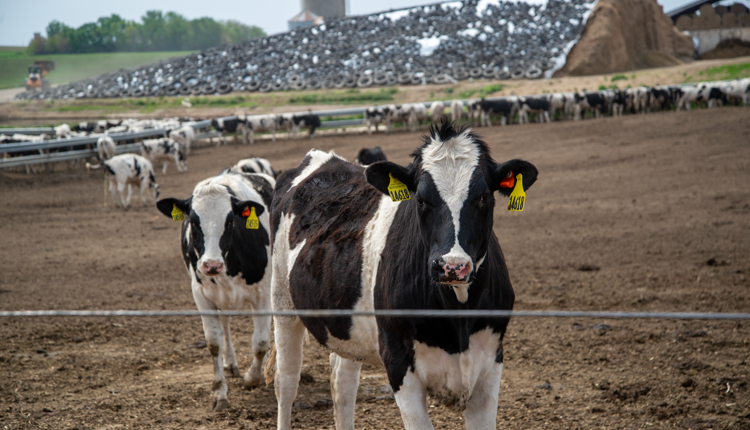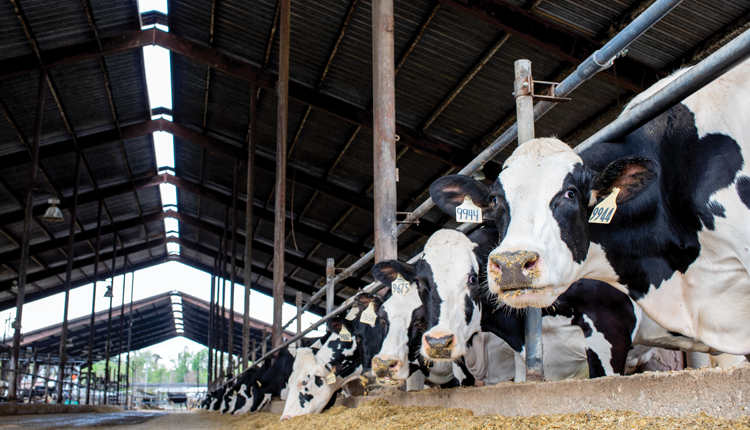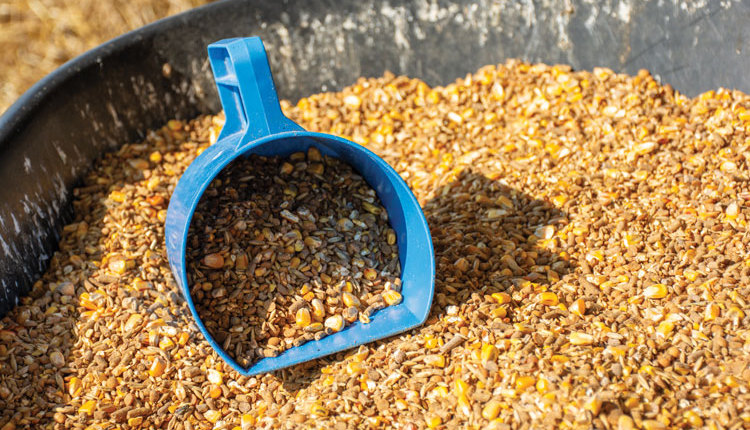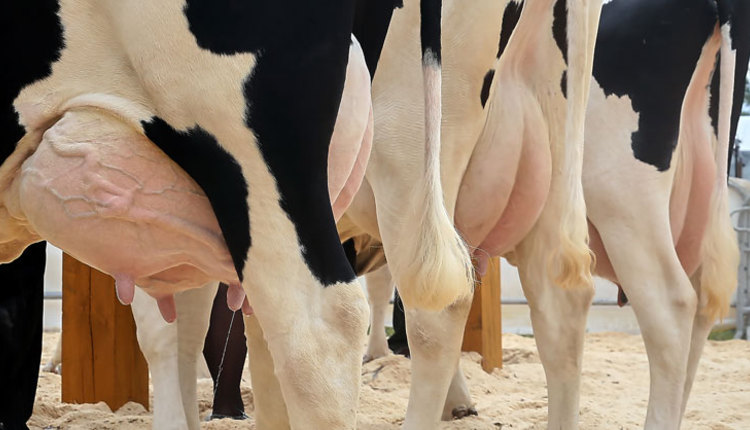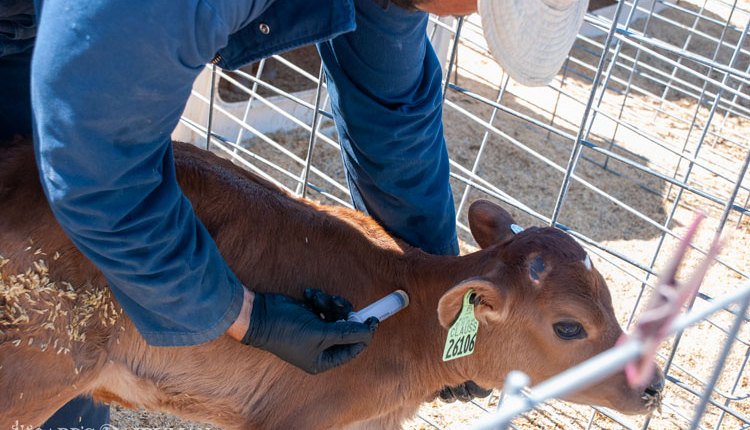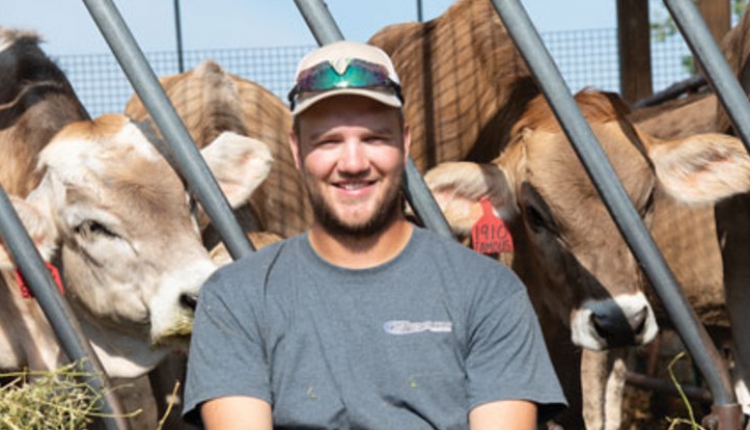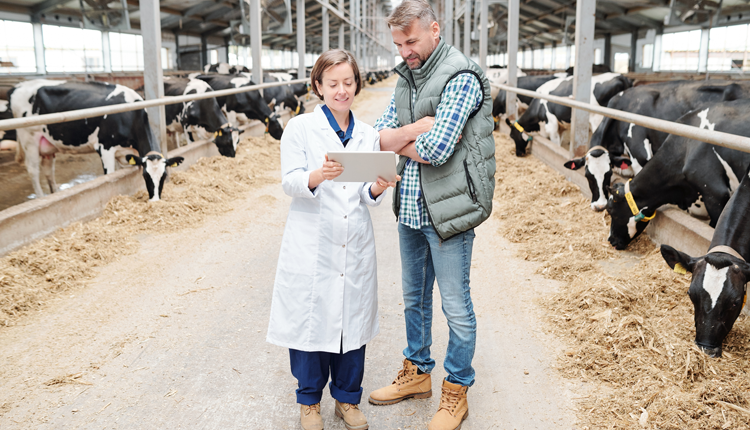The author is a retired dairy industry professional and the 2014 National Dairy Shrine Guest of Honor.
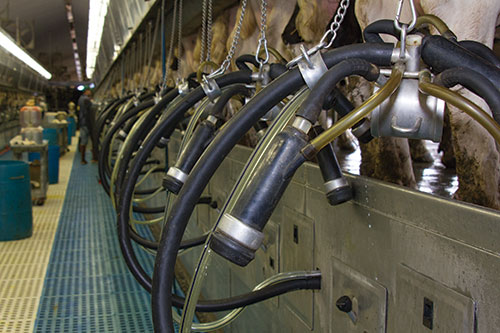
BST remains one of the most studied products in human history. Will we allow science or marketing to rule when the next product rolls out?
Knowing what we know today, would the leadership of several farmer-owned cooperatives still support the decisions made in the mid- to late-2000s to require the farmer-owner producers they represented to forego the use of recombinant bovine somatotropin (rBST)?
Over the 20-plus years I worked for an artificial insemination (A.I.) cooperative, management and the farmer board of directors made several policy decisions that were not always clear cut or popular. As we approached such decisions, we had three guiding questions:
Looking back at rBST
I was born on a dairy farm, studied dairy science in college and then served the dairy industry in a variety of ways for more than 40 years. As I reflect on the various tactics dairy groups have taken over the years, the decision to ban the use of rBST as a dairy farm management tool still baffles me.
Like any new technology, rBST has had its detractors both within and outside of the dairy industry ever since (and even before) it was approved for use on U.S. dairy farms. Most dairy farmers had the choice to use or not to use rBST until the mid- to late-2000s when a number of milk marketers and processors decided to take milk only from farms that pledged to not use supplemental rBST.
I watched from a distance, so I am not sure of all of the background and reasons behind the "No rBST use" affidavits. The following are my remembrances and observations on how it worked out:
Over the years I have read the resolutions passed at dairy and other agricultural organizations annual meetings. Almost always there is one or more resolutions that call for greater support of scientific research in areas that will help agriculture provide a safe, nutritious and adequate food supply for a growing world population.
With the benefit of time passed, as I reflect on such calls for greater scientific research by farm organizations, I feel the stance taken by several dairy groups regarding rBST to be somewhat hypocritical. How can you support greater research and deny the dairy farmers you serve the option of using rBST as a management practice on their farms?
Think about it. How many dairy practices developed as a result of sound, proven scientific research in the past 50 years can you name that have the potential to provide greater benefits to the dairy industry, consumers and the future of the world we live in than rBST? I cannot come up with many.
This article appears on page 79 of the February 10, 2015 issue of Hoard's Dairyman.
Return to the Hoard's Dairyman feature page.

Knowing what we know today, would the leadership of several farmer-owned cooperatives still support the decisions made in the mid- to late-2000s to require the farmer-owner producers they represented to forego the use of recombinant bovine somatotropin (rBST)?
Over the 20-plus years I worked for an artificial insemination (A.I.) cooperative, management and the farmer board of directors made several policy decisions that were not always clear cut or popular. As we approached such decisions, we had three guiding questions:
- Will this enhance quality?
- Is this supported by sound science?
- Is this in the long-range best interest of our members?
Looking back at rBST
I was born on a dairy farm, studied dairy science in college and then served the dairy industry in a variety of ways for more than 40 years. As I reflect on the various tactics dairy groups have taken over the years, the decision to ban the use of rBST as a dairy farm management tool still baffles me.
Like any new technology, rBST has had its detractors both within and outside of the dairy industry ever since (and even before) it was approved for use on U.S. dairy farms. Most dairy farmers had the choice to use or not to use rBST until the mid- to late-2000s when a number of milk marketers and processors decided to take milk only from farms that pledged to not use supplemental rBST.
I watched from a distance, so I am not sure of all of the background and reasons behind the "No rBST use" affidavits. The following are my remembrances and observations on how it worked out:
- 1. Retailers wanted a product that would command a higher price than "conventional" milk to compete with "organic" milk to capture more sales from "lifestyle" consumers.
Observation: As I write this in 2014, I do not find any such price differentiations for fluid milk products in the stores I frequent. If my recollection is correct, this "different, higher-priced" product did not survive more than 6 to 12 months.
- 2. Dairy farmers were going to be paid a worthwhile premium for their raw milk if they pledged to not use supplemental rBST.
Observation: Did dairy farmers in any area of the U.S. get this premium price for more than six months?
- 3. With no scientific test to differentiate the rBST in milk, it was decided that legal affidavits needed to be signed by dairy farmers.
Observation: Getting lawyers involved is rarely an inexpensive or best approach. I read one of the multipage documents a farmer cooperative had lawyers draw up which dairy farmers were required to sign. It contained language threatening that if the dairy farmer was caught using supplemental rBST, he could be held responsible for purchasing an entire truck load or silo filled with milk that contained his rBST supplemented milk.
Second observation: How was this going to be enforced or proven? There is no scientific test to determine the difference in milk when a dairy farmer uses rBST as a management practice.
- 4. Dairy farmer groups were concerned they would lose the market of large retailers who were asking for milk from non-rBST supplemented cows.
Observation: A simple solution (and a teachable moment with the employees of large retailers) would have been for the milk marketing cooperatives to say they were willing to sign an affidavit indicating the retailer was welcome to test all the milk they received and the cooperative would assure the retailer that no excess BST would be found.
Second observation: Dairy farmer groups should have asked retailers, "Do you want to be known for being "Environmentally Friendly (Green)"? Such would include the use of the latest technology (supplemental rBST) to reduce the carbon footprint of the dairy industry. OR "Do you want rBST-free?" Please recall you have no known sound science to prove there is any compositional difference between conventional, rBST-free or organic milk.
Third observation: In the area where I was working, the large retailer within a couple year period stopped using the farmer cooperative as their milk supplier, even though the farmer cooperative had done everything the retailer asked.
- 5. Dairy farmer groups appear to be in awe of the intelligence of the employees who run large publicly traded retailers.
Observation: Don't give retailer employees more credit for superior intelligence than they deserve. I have worked and interacted with a wide variety of organizations and suppliers over the years and cannot recall any group that regularly works harder, smarter and with more of a long-range perspective than (dairy) farmers. If you find yourself in a position of sitting across the table negotiating with a team from a large firm, ask each of the individuals on the other side a couple questions:- How long have you been with this firm?
- What was the highest level science class you have taken?
In many cases you will be surprised at the short tenure management people have with a firm as compared to those in agriculture. Publicly traded companies are frequently more concerned with making the next quarter's financial statement look good, while agriculture is thinking of the next generation.
Secondly, many of the people in middle or higher management positions of large firms are trained in the social sciences such as marketing, accounting or legal matters. Thus, it is only natural that they are not as grounded or as intelligent in the sciences of growing plants and animals and keeping them healthy as agriculture groups. - How long have you been with this firm?
Over the years I have read the resolutions passed at dairy and other agricultural organizations annual meetings. Almost always there is one or more resolutions that call for greater support of scientific research in areas that will help agriculture provide a safe, nutritious and adequate food supply for a growing world population.
With the benefit of time passed, as I reflect on such calls for greater scientific research by farm organizations, I feel the stance taken by several dairy groups regarding rBST to be somewhat hypocritical. How can you support greater research and deny the dairy farmers you serve the option of using rBST as a management practice on their farms?
Think about it. How many dairy practices developed as a result of sound, proven scientific research in the past 50 years can you name that have the potential to provide greater benefits to the dairy industry, consumers and the future of the world we live in than rBST? I cannot come up with many.
